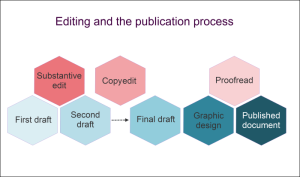
Starting off with Effective leadership in business, get ready to explore the key strategies and characteristics that make a leader successful in the business world. From employee satisfaction to driving innovation, this topic covers it all in an engaging and informative way.
Employment and Work
Effective leadership plays a crucial role in employee satisfaction and overall work culture within a business. By implementing strategies to foster a positive work environment and ensuring clear communication and expectations, leaders can greatly impact the success and well-being of their team.
Impact on Employee Satisfaction
- Employees feel valued and appreciated when their leaders actively listen to their concerns and provide support.
- Effective leaders recognize and reward hard work, which boosts morale and motivates employees to perform at their best.
- A positive work culture created by strong leadership encourages teamwork, collaboration, and a sense of belonging among team members.
Fostering a Positive Work Culture
- Lead by example by demonstrating positive behavior, respect, and professionalism in the workplace.
- Encourage open communication and feedback to ensure that employees feel heard and valued.
- Promote work-life balance and prioritize employee well-being to create a supportive and healthy work environment.
Role of Effective Communication
- Clear and transparent communication from leaders helps eliminate misunderstandings and promotes trust among team members.
- Regular updates and feedback sessions create a culture of continuous improvement and foster a sense of accountability.
- Listening actively to employee concerns and addressing them promptly demonstrates empathy and builds strong relationships within the team.
Setting Clear Expectations
- Clearly defining roles, responsibilities, and goals helps employees understand what is expected of them and reduces confusion or uncertainty.
- Setting achievable targets and providing the necessary resources and support empowers employees to perform their best and reach their full potential.
- Regularly reviewing and adjusting expectations based on feedback and performance ensures alignment and success for both the individual and the team.
Business Management
Effective leadership in business management is essential for the success of any organization. A good leader in this field possesses certain characteristics that set them apart and enable them to lead their team effectively. They must be visionary, strategic, empathetic, and possess excellent communication skills.
Characteristics of an Effective Leader in Business Management
- Visionary: A good leader in business management has a clear vision of where they want the organization to go and can communicate this vision effectively to their team.
- Strategic Thinker: Effective leaders in business management are able to think strategically and make decisions that benefit the organization in the long run.
- Empathetic: A good leader understands the needs and concerns of their team members and can empathize with them, creating a positive work environment.
- Excellent Communicator: Communication is key in business management, and effective leaders are able to communicate clearly and openly with their team.
Comparison of Different Leadership Styles in Business Management
| Leadership Style | Key Characteristics |
|---|---|
| Autocratic | Centralized decision-making, little input from team members |
| Democratic | Collaborative decision-making, input from team members |
| Transformational | Inspires and motivates team members to achieve organizational goals |
| Servant | Puts the needs of team members first, focuses on their growth and development |
Examples of Successful Leaders in Business Management
Steve Jobs, the co-founder of Apple, was known for his visionary leadership style and ability to innovate in the tech industry.
Indra Nooyi, the former CEO of PepsiCo, demonstrated strong strategic thinking and empathy towards her team members.
Significance of Adaptability and Flexibility in Business Management Leadership Roles
In today’s fast-paced business environment, adaptability and flexibility are crucial for leaders in business management. Leaders must be able to pivot quickly in response to changing market conditions, technological advancements, and other external factors. Those who can adapt and remain flexible are better positioned to lead their teams to success in a rapidly evolving business landscape.
Publishing and Printing

Effective leadership plays a crucial role in driving innovation and productivity in the publishing and printing industry. Let’s explore how strategic decision-making and mentorship can shape future leaders in this sector.
Driving Innovation
Effective leadership can drive innovation in the publishing and printing industry by fostering a culture of creativity and experimentation. By encouraging employees to think outside the box and take calculated risks, leaders can inspire new ideas and approaches to traditional processes. For example, a visionary leader may introduce digital publishing platforms or invest in sustainable printing practices to stay ahead of the curve.
Improving Productivity
In publishing and printing companies, effective leadership can improve productivity by setting clear goals, providing resources, and empowering employees to make decisions. By defining key performance indicators and regularly monitoring progress, leaders can identify areas for improvement and implement strategies to streamline processes. For instance, a leader may introduce automation tools or workflow optimization techniques to increase efficiency and reduce turnaround times.
Importance of Strategic Decision-Making
Strategic decision-making is essential for leadership roles within publishing and printing companies to ensure long-term success and sustainability. Leaders must analyze market trends, anticipate changes in consumer behavior, and make data-driven decisions to stay competitive. By aligning business objectives with industry developments, leaders can position their organizations for growth and profitability in a rapidly evolving landscape.
Role of Mentorship and Coaching
Mentorship and coaching play a vital role in developing future leaders in the publishing and printing sector. By pairing experienced leaders with emerging talent, organizations can transfer knowledge, skills, and best practices to the next generation. Through mentorship programs, junior employees can gain valuable insights, receive constructive feedback, and build confidence in their abilities to lead effectively. Additionally, coaching sessions can help individuals identify their strengths, address weaknesses, and set career development goals to advance their leadership potential.
Telecommunications
Effective leadership in the telecommunications industry is crucial for navigating the rapidly evolving landscape of technology and consumer demands. Leaders in this sector face unique challenges that require innovative strategies and adaptability to drive growth and competitiveness.
Challenges in Telecommunications Leadership
- Market Saturation: With intense competition and a saturated market, leaders must find ways to differentiate their offerings and attract and retain customers.
- Rapid Technological Changes: Keeping up with the latest advancements in telecommunications technology requires leaders to be proactive and forward-thinking.
- Regulatory Compliance: Adhering to complex regulations and compliance standards adds a layer of complexity for leaders in the telecommunications sector.
Conflict Resolution Strategies
- Effective Communication: Encouraging open and honest communication among team members can help resolve conflicts before they escalate.
- Mediation and Collaboration: Engaging in mediation and fostering a collaborative environment can help find mutually beneficial solutions to conflicts.
- Setting Clear Expectations: Clearly outlining roles, responsibilities, and expectations can prevent misunderstandings and reduce conflict within teams.
Impact of Technological Advancements
- Enhanced Connectivity: Technological advancements such as 5G and IoT have revolutionized connectivity, allowing for faster and more efficient communication.
- Data Security Challenges: With the increased use of data-driven technologies, leaders must prioritize cybersecurity measures to protect sensitive information.
- Virtual Collaboration Tools: The rise of virtual collaboration tools has transformed how teams communicate and work together, requiring leaders to adapt to remote work environments.
Driving Growth and Competitiveness
- Innovative Offerings: Effective leadership can drive innovation in product and service offerings, helping companies stay ahead of the competition.
- Talent Development: Investing in talent development and fostering a culture of continuous learning can attract top talent and drive company growth.
- Customer-Centric Approach: Leaders who prioritize customer needs and feedback can enhance customer satisfaction and loyalty, leading to business growth and competitiveness.
Conclusive Thoughts

In conclusion, Effective leadership in business is not just a skill but an art that can transform companies and industries. By understanding the importance of communication, adaptability, and strategic decision-making, leaders can truly make a difference in their organizations.
Quick FAQs
How can effective leadership impact employee satisfaction?
Effective leadership can impact employee satisfaction by creating a positive work culture, providing clear expectations, and fostering open communication.
What are the characteristics of an effective leader in business management?
An effective leader in business management is adaptable, communicative, strategic, and able to inspire and motivate their team.
How does effective leadership drive innovation in the publishing and printing industry?
Effective leadership drives innovation in publishing and printing by encouraging creativity, embracing new technologies, and fostering a culture of experimentation.
What challenges may effective leaders face in the telecommunications industry?
Effective leaders in the telecommunications industry may face challenges such as rapid technological advancements, intense competition, and the need for constant innovation.







